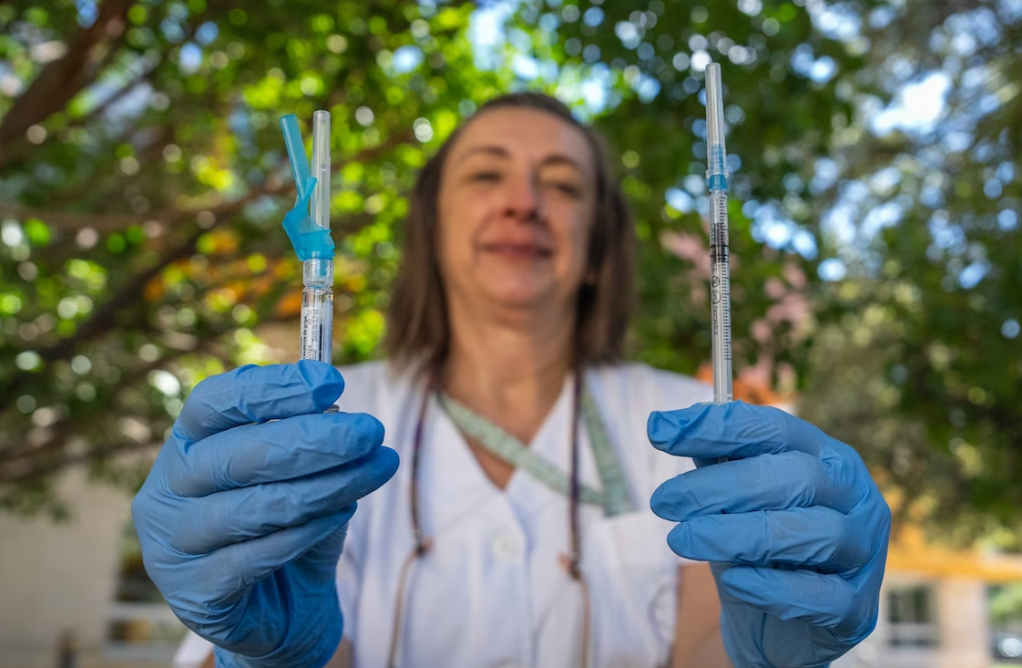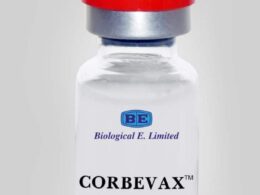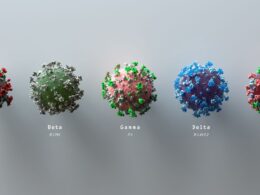the health strategist
institute for strategic health transformation
& digital technology
Joaquim Cardoso MSc.
Chief Research and Strategy Officer (CRSO),
Chief Editor and Senior Advisor
October 4, 2023
One page summary
What is the message?
The new COVID-19 vaccine represents a significant advancement in the fight against the virus, rendering the term “booster” obsolete.
This annual shot offers enhanced protection against evolving strains, reduces the risk of severe illness, and is safe for most individuals.

Key Takeaways
The One-and-Done COVID Vaccine:
The latest COVID vaccine, developed by Pfizer-BioNTech and Moderna, has been approved by the FDA. Unlike earlier vaccines, this one aims to provide annual protection with a single shot, similar to the flu vaccine.
Waning Immunity and the Need for Annual Vaccination:
Waning immunity is a key factor behind the recent surge in COVID-19 cases and hospitalizations. This new vaccine addresses the issue, aligning with the approach taken for annual flu shots.
Vaccination vs. Infection:
Contrary to misconceptions, vaccination remains the safer choice compared to acquiring immunity through infection. Over 600 million COVID vaccine doses have been administered in the U.S., while the risks associated with COVID-19 infections, including long-term health issues, persist.
Protection Against New Variants:
The latest COVID vaccine specifically targets the Omicron subvariants, making it crucial for Americans to receive this annual immunization.
Recommendations for Getting the New COVID Vaccine:
The CDC recommends the new COVID vaccine for individuals aged six months and older. Older adults and immunocompromised individuals are urged to prioritize this vaccine.
Timing of Vaccination:
While the CDC suggests getting the vaccine two months after the last COVID vaccine or infection, some experts suggest waiting four to six months to maximize the effectiveness of protection.
Combining COVID and Flu Shots:
It’s safe to receive both the COVID and influenza vaccines together, but individuals with past negative reactions may consider spacing them apart.
Exemptions from COVID Vaccination:
With rare exceptions, such as severe allergic reactions or certain medical conditions, COVID vaccination is recommended for all individuals, including pregnant women and those with chronic health issues.
Cost of the New COVID Vaccine:
The vaccine is priced at approximately $125 by Pfizer and Moderna, and health insurance is expected to cover the cost. Some issues may arise, but solutions are expected. For the uninsured or underinsured, the CDC offers financial assistance programs.
Statistics:
- COVID-19 deaths in the U.S. rose by 8 percent in one week, with hospitalizations increasing by nearly 4,000.
- Immunity from previous COVID infection or vaccination wanes in about seven to nine months.
- Over 600 million COVID vaccine doses have been safely administered in the U.S.
- The new vaccine specifically targets the Omicron subvariants.
- The Bridge Access Program covers the cost of the vaccine for the uninsured or underinsured through December 31, 2024.
Examples:
- Annual flu shots have been updated for over 40 years to protect against new influenza strains, similar to the approach with the new COVID vaccine.
- Emerging research shows that multiple COVID infections can lead to chronic health issues.
- The new vaccine aims to provide protection through the winter season.
In summary
The new annual COVID vaccine represents a game-changer in the ongoing battle against the virus, offering enhanced protection and rendering the term “booster” obsolete.
Vaccination remains the safest and most effective means of preventing severe illness and reducing the risk of long-term health issues associated with COVID-19.
Individuals are encouraged to follow CDC recommendations, and financial assistance is available for those without insurance coverage.
DEEP DIVE

This summary was written based on the article “Why the new COVID shot is a game-changer (and why the term ‘booster’ is obsolete)”, published by National Geographic and written by Daryl Austin, on October 3, 2023.
To read the full article, access https://www.nationalgeographic.com/science/article/covid-flu-vaccine-questions











